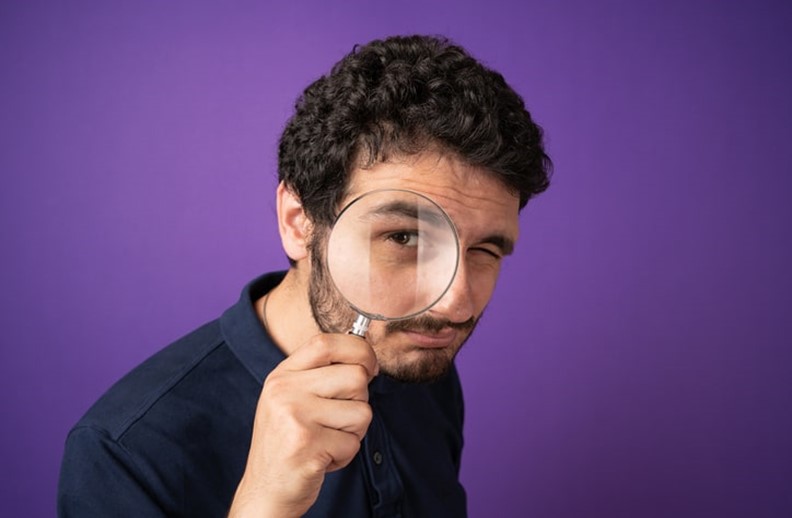When it comes to hiring a coach, the process can often feel overwhelming. Finding the right person who understands your goals and has the expertise to guide you efficiently is crucial. But how do you determine the perfect fit? With factors like coaching style, experience, and compatibility to consider, it’s important to dive deeper and explore the details before making a decision. So take your time, do your research, ask questions, and find a great coach who will not only support and motivate you but also align with your unique aspirations on your journey to success.

As a guide to what to look for in a coach, be sure to check out my blog How to Find a Personal Coach
When you consider the possibility of working with a coach, it’s important to note that many top coaches offer an initial consultation, typically at no cost. This introductory meeting provides a valuable opportunity for you to ask important questions and gain insights into the coach’s expertise and approach. It allows you to assess whether the coach possesses the qualities that are important to you, such as experience, knowledge, and communication skills.
Additionally, you can evaluate if their coaching style aligns well with your needs and preferences, whether you prefer a more direct approach or a supportive and nurturing one. Taking the time to engage in these meaningful conversations can help ensure that you find the right coach who can effectively support you in achieving your goals and provide guidance, accountability, and motivation along the way.
Coaching Qualifications
When considering which coach to hire, it’s crucial to thoroughly assess qualifications, including a coach’s training, certifications, and credentials. This comprehensive evaluation ensures that the coach you choose has not only received the necessary training but also possesses the expertise and knowledge to guide you effectively towards achieving your goals. By taking the time to carefully consider these factors, you can have confidence in selecting a successful coach who will provide the support and guidance you need on your journey to success.
The best coaches globally have earned a credential from the International Coaching Federation (ICF) and engage in ongoing training and mentoring to maintain their standing. According to ICF, 85% of coaching clients say it’s important or very important that their coach holds a certification or credential.
Coaches can achieve three levels of ICF credentials, each requiring ongoing training and increasing coaching hours.
- Associate Certified Coach
- Professional Certified Coach
- Master Certified Coach
Most ICF-certified coaches are listed on the ICF website. You can check a coach’s level of credentials there. Use the following questions as well.
Questions to Probe Coaching Qualifications

- What qualifications do you have as a coach? Have you been certified by the International Coaching Federation, and if so, what certifications do you hold?
- Where did you receive your coach training?
- What did that training involve (hours, virtual vs. in-person, coaching practice, etc.)
- Why did you become a coach?
Coaching Experience
It is essential to understand a coach’s experience as it provides valuable insight into their understanding of the subject they are coaching on. Moreover, listening to their description of experience can help you assess how successful they’ve been in working with others having similar goals. A great coach will have multiple years of professional coaching experience, with numerous hours coached.
Questions to Probe Coaching Experience
- How long have you been working as a coach?
- Do you specialize in a particular type of coaching, for example, coaching focused on wellness, sports, career, etc?
- How many clients and/or companies have you worked with, and over what period of time?
- How many hours have you coached since your training was completed?
- What was your experience prior to coaching?
Coaching Style
To ensure a successful coaching experience, it is crucial to feel comfortable with your coach’s style. A good coach will employ a variety of strategies and approaches, tailoring their methods to address issues and set goals in a way that resonates with you. By finding a coach whose communication style, values, and expertise align with your needs, you can establish a strong foundation for growth and development. This alignment fosters a deeper understanding and connection between you and your coach, enhancing the effectiveness of the coaching relationship.
Questions to Probe Coaching Style
- How would you describe your coaching style?
- What coaching process or model do you typically use?
- Given my goals for coaching, how would you approach working together?
- How will you measure success?
- How might you adapt your style and approach, given my goals?
- What assessments, if any, do you use?
- From your perspective, what skills or important qualities should an effective coach have?
- As a coach, what are the most important skills that you use?
The Client Relationship
The nature of the coaching relationship between you and your coach is essential in creating a great coaching experience. A coach needs to understand your goals to develop an appropriate plan of action that will help you achieve your objectives. Having an understanding of your expectations and the positive change you’d like to achieve allows your coach to create an effective, personalized program for you.
Questions About the Coaching Relationship
- What do you expect of the clients with whom you work?
- Can you share one or two success stories with individuals who have goals similar to mine?
- When you haven’t been able to achieve the agreed-upon goals, why is that?
- How long do your coaching engagements typically last?
- Do you provide any follow-up after completing the program and if so, for how often?
Coaching Sessions
Coaching sessions involve regular, structured conversations between you and your coach to set goals, review challenges, assess progress, and agree on the next steps. The length and frequency of these discussions, typically between 45 – 60 minutes, will depend on your goals and needs. A good coach will use a discussion flow starting with asking you to share what you hope to accomplish in the conversation, asking you to assess any practice or work you’ve done since your last meeting, and using open-ended questions to help inspire insights and raise awareness. You should find that great coaches listen much more than they talk.
Questions About Coaching Session Format and Content
- How often will we meet, and in what format (in-person, video call, etc.) will our sessions be held?
- How long will our sessions be?
- Is there any communication or follow-up that happens between sessions?
- Are there opportunities for additional support between sessions?
- Do you provide any materials or resources to help me reach my goals?
- Do you have any specific techniques you use to help clients stay motivated and on track with their goals?
- Can you provide a reference for me to speak with?
- What if I have questions following this session or after a coaching session?
Contracting and Payment
And finally, the last step in the coaching process is contracting for both schedule and payment. Once you have discussed the terms with your prospective coach, they may ask you to sign a contract that outlines the agreed-upon terms. This is a common practice that helps establish a mutual understanding of the services to be provided and what you can expect to receive in return. It serves as a formal agreement that protects both parties involved.
When engaging with a potential coach, be sure to inquire about the specific details of the contract. Clarify any questions or concerns you may have regarding the terms, payment arrangements, or any other relevant aspects. This will ensure that you have a clear understanding of the agreement before moving forward. Taking the time to review and discuss the contract demonstrates your commitment and professionalism as a client.
Remember, signing a contract is a valuable step in the coaching process by documenting the coaching relationship and defining accountability for both coach and client.
Questions About Contracting and Payment
- What is the cost of your sessions? Do you offer packages?
- What if I need to miss a scheduled session?
- What would be the first steps in getting started?
- How and when do you accept payment?

Conclusion
This comprehensive blog post presents a valuable set of essential questions to consider when hiring a great coach. It’s crucial to remember that engaging with a coach requires a significant investment of your time, money, and effort. To make an informed decision, it’s important to thoroughly research and meet with multiple good coaches, carefully evaluating their qualifications, expertise, and compatibility. By utilizing the detailed questions provided above, you can ensure collaboration with a great coach who perfectly aligns with your specific needs and goals.
